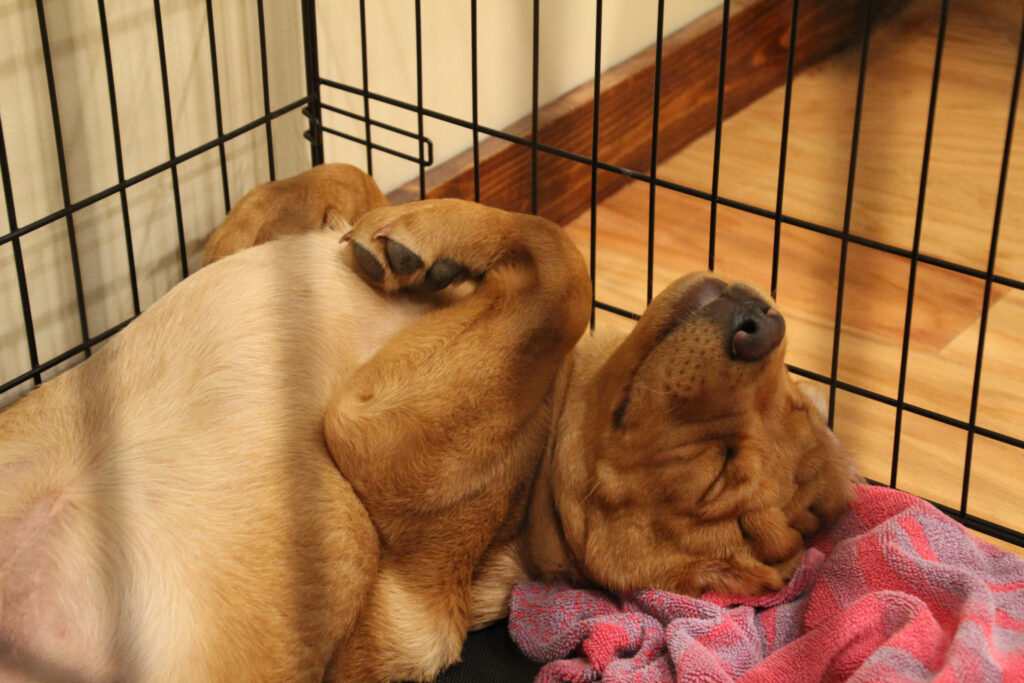Yes, putting your 8-week-old puppy in a crate at night is a good idea, as it provides a safe, structured environment that can help with their adjustment and training.
Here’s why it’s beneficial and how to do it effectively…
Benefits of Crate Training at Night
- Safety
- Prevents the puppy from chewing on hazardous items or getting into mischief while you sleep.
- Aids Potty Training
- Puppies naturally avoid soiling their sleeping area, so a crate helps teach them to “hold it” until they’re let out for a potty break.
- Provides Comfort and Security
- A crate mimics a den-like environment where the puppy can feel safe and cozy.
- Prevents Nighttime Wandering
- Helps your puppy settle down and associate the nighttime with sleep.
- Encourages Independence
- Helps the puppy learn to be alone and self-soothe in a safe space.
How to Use a Crate for an 8-Week-Old Puppy
- Choose the Right Crate
- Use a crate that is large enough for the puppy to stand, turn around, and lie down comfortably, but not so big that they can sleep in one corner and potty in another.
- A crate with a divider can adjust the space as your puppy grows.
- Create a Cozy Environment
- Add soft, washable bedding for comfort.
- Include a puppy-safe toy or a blanket with their mother’s scent to help them settle.
- Place the Crate Nearby
- Keep the crate in your bedroom or close by during the first few weeks. Hearing you nearby can reduce anxiety and help the puppy feel secure.
- Establish a Bedtime Routine
- Take your puppy out for a potty break right before bedtime.
- Keep bedtime calm and consistent. Avoid high-energy play just before crating.
- Gradual Introduction
- Allow your puppy to explore the crate during the day with the door open.
- Use treats or toys to create positive associations with the crate.
- Potty Breaks During the Night
- At 8 weeks, your puppy will likely need 1–2 potty breaks during the night. Set an alarm to let them out every 2–3 hours initially.
- Ignore Whining (When Appropriate)
- If your puppy whines initially, it’s likely an adjustment to the new routine. Avoid letting them out for attention unless you’re certain they need a potty break.
Tips for Success
- Be Consistent – Stick to a routine for crating at night. Predictability helps puppies adapt faster.
- Don’t Use the Crate for Punishment – The crate should be a positive, safe space.
- Start With Short Intervals – If your puppy is hesitant about the crate, start with short periods and gradually increase the time.
Common Concerns
- Crying or Whining
- It’s normal for puppies to cry the first few nights as they adjust to the crate and being separated from their littermates. Be patient and provide reassurance without creating dependency.
- Accidents in the Crate
- If accidents occur, ensure the crate isn’t too big and stick to a consistent potty schedule.
Crating your 8-week-old puppy at night is highly recommended for their safety, potty training, and adjustment to your home. With patience, consistency, and a positive approach, your puppy will soon view their crate as a secure and comfortable space, making nighttime routines much easier for both of you.


